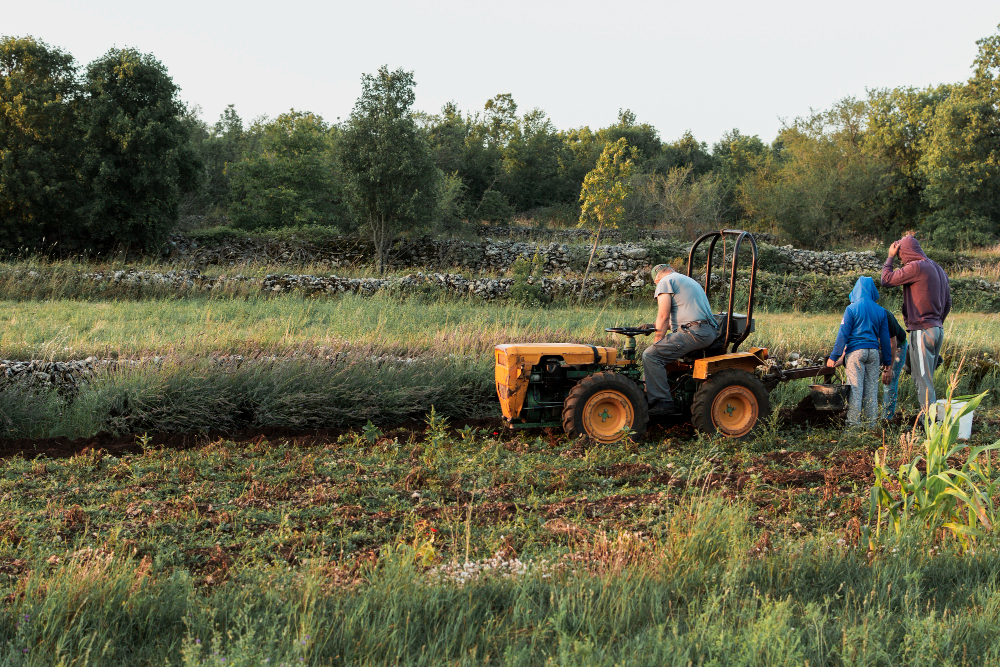Farming is one of the world’s oldest professions, but while the principles of planting, cultivating, and harvesting haven’t changed, the tools farmers use have advanced significantly. Whether you’re managing a large commercial farm or a small homestead, having the right equipment makes a world of difference in efficiency, productivity, and even profitability. From powerful tractors to simple hand tools, every piece of equipment plays a vital role in keeping a farm running smoothly.
In this post, we’ll walk through some of the must-have farm equipment every farmer should know about, breaking it down into large machinery, specialized implements, and essential everyday tools.
1. The Heart of the Farm: Tractors
No piece of equipment is more iconic—or more essential—than the tractor. Tractors are the workhorses of modern farming, capable of handling multiple tasks depending on the attachments used.
- Compact Tractors: Perfect for small-scale farms, orchards, and gardens, compact tractors offer versatility in tight spaces. They can be used for mowing, tilling, and pulling small trailers.
- Utility Tractors: These are larger and more powerful, designed to handle heavier jobs such as plowing, planting, and hauling.
- Specialized Tractors: Vineyards, orchards, and certain crops may require narrower or specialized models to maneuver efficiently.
Tractors save countless hours of manual labor and can be fitted with attachments like loaders, tillers, seeders, or sprayers, making them the backbone of most farming operations.
2. Implements and Attachments
A tractor is only as useful as the equipment it can carry. Implements and attachments extend a tractor’s versatility and allow it to handle specific farm tasks. Some common and must-have implements include:
- Plows: Essential for turning over soil before planting, ensuring aeration and proper nutrient mixing.
- Harrows: Used to break up soil clumps, level the surface, and prepare fine seedbeds.
- Seed Drills and Planters: These ensure seeds are planted at consistent depths and spacing, improving crop uniformity and yield.
- Sprayers: Necessary for applying fertilizers, herbicides, or pesticides efficiently across fields.
- Balers: For livestock farmers, balers are indispensable for compressing hay or straw into manageable bales for storage and feeding.
Each implement helps reduce manual effort while boosting the farm’s productivity and output.
3. Equipment for Harvesting
When harvest season arrives, efficiency is everything. Delays can mean lost profits, so the right harvesting equipment is a must.
- Combine Harvesters: A staple for grain farmers, combines streamline harvesting by reaping, threshing, and winnowing crops in one pass.
- Forage Harvesters: Designed for silage production, these machines chop grass, corn, or other crops for livestock feed.
- Smaller Harvesting Tools: For small farms, tools like scythes, sickles, or mechanized reapers can still be highly effective.
Harvesting equipment ensures crops are gathered quickly and in peak condition, reducing waste and labor demands.
4. Livestock Farming Essentials
If your farm includes animals, specialized equipment is necessary for their care and management.
- Feed Mixers and Dispensers: Make feeding large groups of animals more efficient.
- Watering Systems: Automatic waterers save time and ensure livestock always have access to clean water.
- Fencing Tools: Electric fences, post drivers, and wire stretchers are critical for building and maintaining secure enclosures.
- Milking Equipment: For dairy farmers, milking machines speed up the process and improve hygiene compared to manual methods.
Proper livestock equipment not only saves time but also improves animal welfare, which directly impacts productivity.
5. Everyday Tools That Make a Big Difference
Not all farm equipment comes with engines or wheels. Sometimes, simple hand tools are just as vital as heavy machinery.
- Shovels and Spades: Indispensable for planting, digging, and moving soil.
- Hoes and Rakes: Perfect for weeding, soil preparation, and light maintenance.
- Wheelbarrows and Carts: Help transport materials, feed, or harvested crops across the farm.
- Handheld Pruners and Shears: Necessary for orchard maintenance, vineyard care, or trimming hedges.
- Power Tools: Chainsaws, drills, and pressure washers often find regular use in farm maintenance tasks.
These simple tools might not be as flashy as a combine, but they are used daily and keep operations running smoothly.
6. Safety and Storage Equipment
Farm work involves risks, so safety and storage shouldn’t be overlooked. Personal protective equipment (PPE) such as gloves, boots, goggles, and ear protection helps reduce injuries. Additionally, proper storage solutions like tool sheds, barns, and weatherproof containers ensure equipment lasts longer and stays in good working order.
Final Thoughts
From tractors to hand tools, farm equipment forms the backbone of any successful agricultural operation. While large machinery like tractors and harvesters often take center stage, smaller implements and everyday tools—many crafted from durable materials such as steel for agricultural & farm equipment—are equally vital for keeping daily tasks on track. The right balance of equipment depends on the size of your farm, the type of crops or livestock you manage, and your long-term goals.
Investing in high-quality equipment made from strong, long-lasting materials like steel not only reduces time and labor but also enhances productivity, efficiency, and overall profitability. Whether you’re just starting out or upgrading your operation, understanding the essential tools and machinery is the foundation of building a thriving and sustainable farm.
For more, visit Pure Magazine


